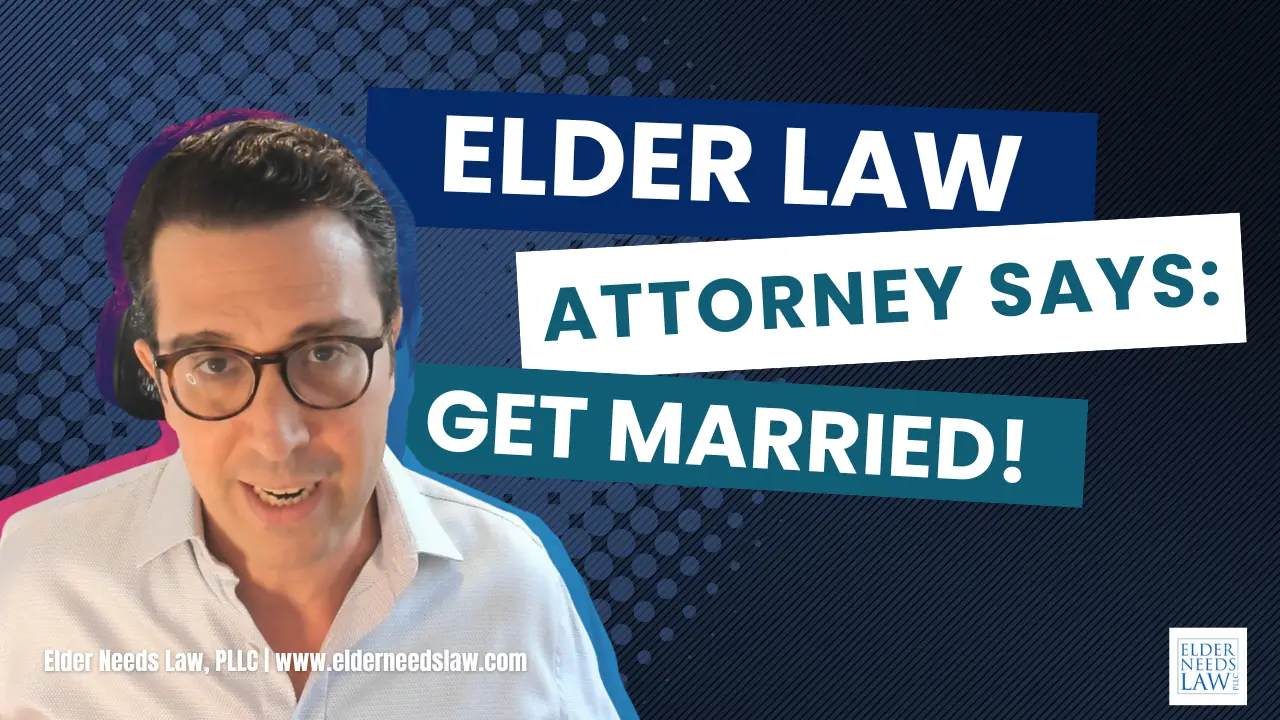When Getting Married Makes Financial Sense: A Florida Medicaid Planning Strategy

Have you ever wondered if your marital status could impact your ability to qualify for Medicaid benefits in Florida? It might surprise you to know that sometimes, getting married can actually help protect your assets when planning for long-term care. This isn't about romance—it's about strategic financial planning that can save you thousands of dollars.
The Unexpected Advantage of Marriage in Medicaid Planning
Jason Neufeld, a board-certified elder law attorney and managing partner of Elder Needs Law, recently shared a fascinating case that highlights how marital status can play a crucial role in Medicaid planning. While elder law attorneys don't typically get involved in personal relationship decisions, there are specific situations where marriage can provide significant financial benefits for couples facing long-term care needs.
A Real-Life Success Story
Picture this: a couple who had been life partners for 25-30 years came in for a consultation. They had never married—it simply wasn't something they felt they needed to do. They were deeply committed to each other and had built a life together, but they assumed that getting married might actually hurt their chances of qualifying for Medicaid in Florida.
The reality was quite the opposite.
This couple had accumulated about $125,000 in assets, all held in the name of the partner who would eventually need Medicaid benefits. Under normal circumstances, this amount of money would disqualify them from receiving benefits, since Florida Medicaid recipients can only have $2,000 in countable assets.
But marriage changed everything.
How the Community Spouse Resource Allowance Works
Here's where Florida Medicaid law gets interesting. While gifting assets is generally prohibited when trying to qualify for benefits, this rule doesn't apply to married couples. Married couples can take advantage of something called the Community Spouse Resource Allowance (CSRA).
In 2025, the CSRA allows the healthy spouse to retain just over $157,000 in their name, while the spouse needing Medicaid care can only have $2,000. This means that married couples have a significant advantage when it comes to asset protection.
For this particular couple, getting married meant they could legally transfer all $125,000 from the future Medicaid recipient's name to the healthy partner's name. Since this amount fell well within the CSRA limits, it was completely protected from Medicaid spend-down requirements.
The Simple Solution
The attorney's recommendation was straightforward: "Why don't you get married if it's all the same to you and if you love each other and it feels like the right thing to do?"
The couple loved the idea. They had wanted to marry anyway, and now they had a compelling financial reason to do so. They went to the courthouse, got married, and suddenly protecting their life savings became much simpler.
When Marriage Makes Strategic Sense
This strategy works best in specific situations:
- Couples who have been together long-term but never married
- Cases where assets are concentrated in the name of the person who will need care
- Situations where the total assets fall within CSRA limits
- Couples who are open to marriage and see it as a positive step
It's important to note that this isn't a common recommendation. Elder law attorneys typically don't get involved in marital decisions unless there's a clear strategic advantage for asset protection.
Why Professional Guidance Matters
Medicaid planning in Florida involves complex rules and regulations that change regularly. What works for one couple might not work for another, and the timing of these decisions can be crucial. The CSRA limits, asset calculation methods, and transfer rules all require careful consideration.
Working with a qualified elder law attorney ensures that you're making informed decisions based on current Florida law and your specific circumstances. They can help you evaluate whether strategic marriage (or in some cases, strategic divorce) makes sense for your situation.
Planning Your Financial Future
If you're in a long-term relationship and starting to think about long-term care planning, it's worth having a conversation about how your marital status might impact your options. The financial implications can be substantial, and the earlier you start planning, the more options you'll have.
Don't assume that staying unmarried will help you qualify for benefits—sometimes the opposite is true. Every situation is unique, and what matters most is having accurate information to make the best decision for your circumstances.
Remember, Medicaid planning isn't just about qualifying for benefits—it's about protecting the assets you've worked a lifetime to accumulate while ensuring you can access the care you need.
About Elder Needs Law
Jason Neufeld is a board-certified elder law attorney and managing partner of Elder Needs Law, helping Florida families protect their assets and plan for long-term care needs.
Resources:
- Website: elderneedslaw.com
- Medicaid Planning Resource: medicaidplanninglawyer.com
- Book: "Medicaid Planning: How to Protect Some of Your Assets to Pay for Long-Term Care" - Available on Amazon
The information in this article is for educational purposes only and should not be considered legal advice. Medicaid planning involves complex regulations that vary by state and individual circumstances. Always consult with a qualified elder law attorney before making important financial or legal decisions.







